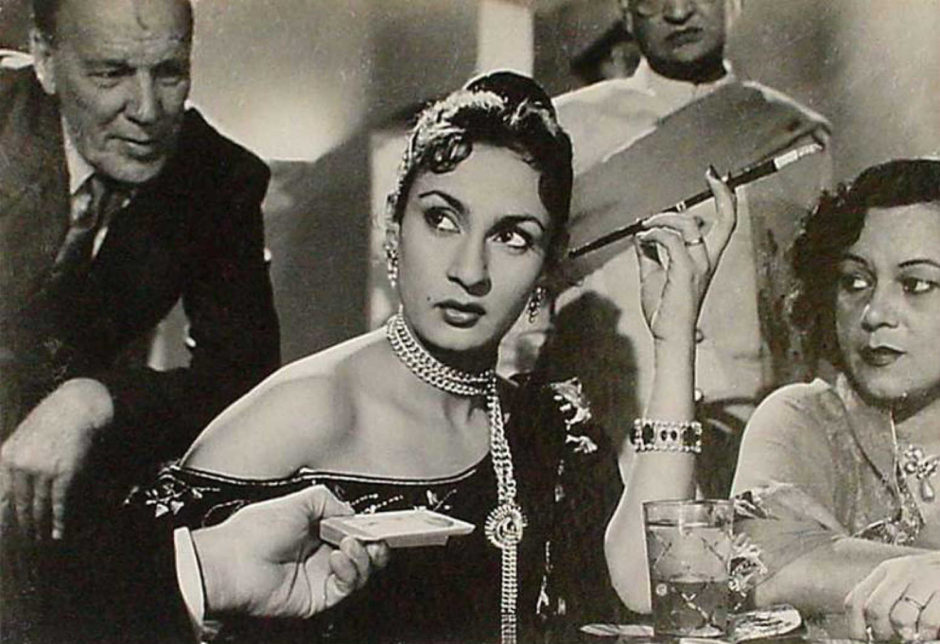The Jewish contribution to the Bollywood movie industry is explored exhaustively by Danny Ben-Moshe in his intriguing documentary, Shalom Bollywood: The Untold Story of Indian Cinema, which will be screened at the Toronto Jewish Film Festival on May 6 and 9.
From the 1920s until the 1960s, several of its leading ladies and one of its male stars were native Indian Jews. Actresses like Ruby Myers, Esther Victoria Abraham and Florence Ezekiel, all of whom adopted Hindu pseudonyms, played vamps and lit up the screen with their sexuality. David Abraham Cheulkar shot to fame as a legend in his own time.
As Ben-Moshe observes, Jewish women like Myers, Abraham and Ezekiel achieved stardom because they were at the right place at the right time. Hindu, Muslim and Christian women were discouraged from pursuing a career in acting, leaving the field open to males who portrayed females and Jews who pretended to be Hindus.
Ben-Moshe, an Australian filmmaker, spices up his film with excerpts from Indian movies, which are excessively melodramatic and saccharine by today’s standards. But that’s what Indian moviegoers apparently demanded and got in spades.
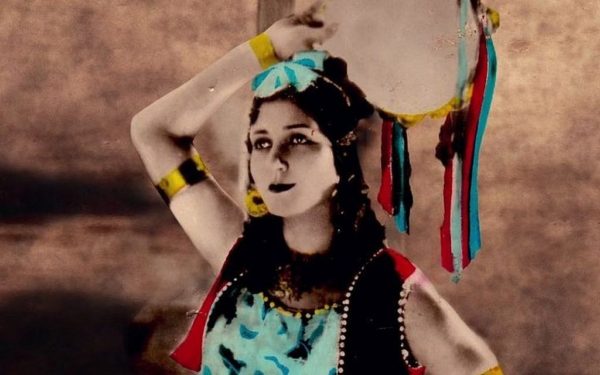
Myers, who hailed from the Baghdadi community, was known as Sulochana to her legion of fans. “She had luminous eyes, like the stars,” says an Indian actor and screenwriter whose mother was an actress. “She was gorgeous, you couldn’t take your eyes off her.”
By Ben-Moshe’s reckoning, she was India’s first super star, an alluring beauty who apparently was the owner of the first Rolls-Royce in Bombay (Mumbai), the center of the Indian film industry. In later life, she was a producer, but lost most of her fortune in money-losing ventures.
She blazed a trail for Rose Ezra, a Baghdadi Jew from Calcutta who was cast in films as Miss Rose.
Ezra’s cousin, Esther Victoria Abraham, a teacher in a Jewish boy’s school, went by the name of Pramila. She capitalized on her good looks and became the first Miss India in 1947.
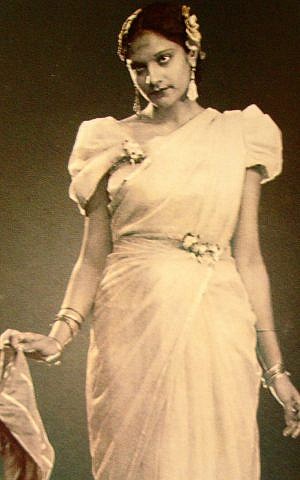
Pramila married an actor who happened to be a Muslim. When the Indian subcontinent was divided into India and Pakistan in 1947, he fled to Pakistan. Refusing to join him, she brought up their only child, Haidar Ali, who became an actor and screenwriter.
Ezekiel took the stage name of Nadira and appeared in films in which she usually wore provocatively tight dresses. She rocketed to prominence in the 1950s and 1960s, when Hindu, Muslim and Christian women began entering the industry.
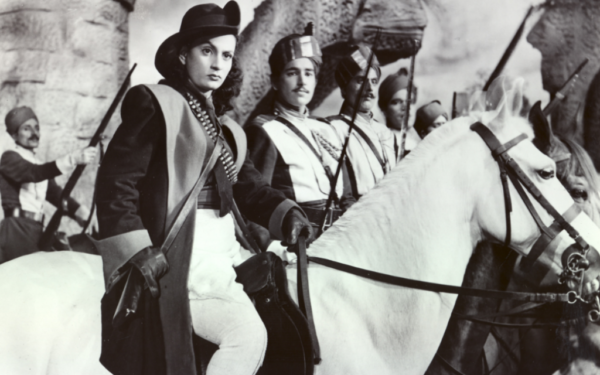
Cheulkar, a Bene Israel Jew, was known as Uncle David. A lawyer by profession, he abandoned law to become an actor. Short and balding, he was not exactly Hollywood handsome. But he was charismatic as a character actor, particularly in his most beloved movie, Boot Polish. He immigrated to Canada in 1979, but no reason is given for his departure from India. He suffered a series of strokes in 1981 and died of a heart attack in the following year.
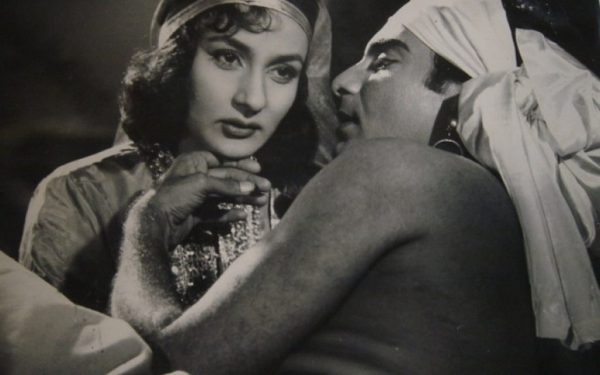
Ben-Moshe briefly introduces viewers to two behind-the-scenes Bollywood personalities, David Penkar and Ezra Mir. Penkar created Bollywood’s obsession with flamboyant dance routines, while Mir inserted the rapturous kiss into steamy scenes. Regrettably, he doesn’t delve into their respective careers, leaving Penkar and Mir as mere ciphers.
When Myers died in 1983, she was penniless and alone. In her honor, India issued a postage stamp. Ezekiel passed away in 2006. She, too, was impoverished. Abraham died in 2006 at the age of 96.
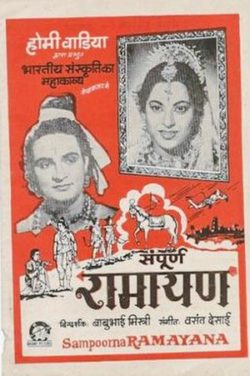
The film presents Rachel Reuben, Ezra’s granddaughter, as a contemporary Bollywood actress. It would appear she had a fleeting career in acting and modelling before marrying an American Jew and moving to New York City, far from the bustle of Mumbai.
